The performance of your truck is mostly dependent on its upkeep. Professionals or a Heavy Duty Truck Mechanic have the necessary training and expertise to maintain trucks. They offer every detail about your truck, including the condition of the tires, the battery, the fuel, and much more. As a result, maintenance is the only factor affecting the truck’s performance. It is advisable to replace any malfunctioning or completely broken parts of your truck as soon as possible.
We are here to provide your truck with a number of required checkups that will keep it safe. Inform us about them.
Table of Contents
10 Essential Truck Maintenance Tips
- Brake Wear and Failure
- Engine Maintenance
- Prevent Body Problems
- Electrical System Issues
- Replace Parts
- Maintain Lubrication
- Change Oil
- Monitor Coolant System
- Air Pressure in Tyres
- Check Fuel and Storage Tank
10 Essential Truck Maintenance Tips
Here are ten crucial semi-truck maintenance service suggestions that will help you increase your truck’s productivity.
1. Wear and Failure of Brakes
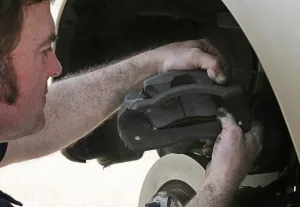
Brake service is the first item we covered in this vehicle maintenance guide. Regretfully, brake failure caused a number of incidents on the roads. That explains why there are injuries to third parties and damage to vehicles. It is important to have regular expert brake inspections performed on your truck in order to reduce the likelihood of accidents. Every oil change should also include a brake inspection and maintenance because driving habits affect how far a brake can go.
Brakes need to have their parts changed frequently since they wear out. The brake shoe, which is integrated into the pads, indicates when the brakes need to be replaced. It is advisable to install new brake springs, bushings, and pins and replace the brake pads on your truck. When shoes are changed out, drums should also be changed.
2. Engine Upkeep
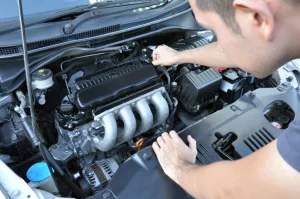
Your truck can be off the road due to engine or drivetrain issues. For this reason, you should be alert for symptoms like heavy smoke, low power, and low oil pressure. These are the symptoms of a sick engine.
It is imperative that you schedule a professional inspection for your vehicle engine so that experts can provide you with comprehensive information about it. Other maintenance for pickup trucks includes checking the oil and boost pressures, monitoring the engine coolant, and measuring the exhaust temperature. Regular checks should also be performed on the Wheel Bearing Seals alignment and the rubber components beneath the hood.
3. Avoid Physical Issues
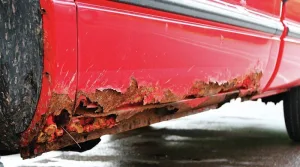
One of the main causes of some vehicles being retired earlier than others is body corrosion. Chemicals and salt are the causes of the rust. Corrosion is likely if you Drive Line Repair Shop in an area with a lot of snow and ice on the roads. Rust cannot be stopped, however it can happen gradually, extending the vehicle’s lifespan.
You should wash and clean your truck every 10 days. Washing keeps contaminants from eating through paint, clear coat, bare metal and primer. Along with this, you have to be sure to drain clear of debris so that the door jams can be wiped down.
4. Electrical System Issues
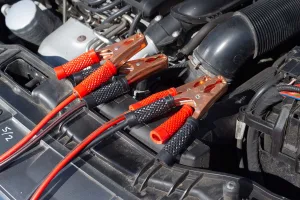
Newer trucks are more dependent on electrical systems. These newer vehicles use wires and many sensors to communicate with a computer to keep their engine turning. So you should do electrical checkups for your truck.
Your truck should be cleaned and washed every ten days. Cleaning prevents impurities from corroding primer, bare metal, clear coat, and paint. In addition, you need to make sure that the drain is clear of dirt so that the door jambs may be cleaned.
5. Change Out the Parts
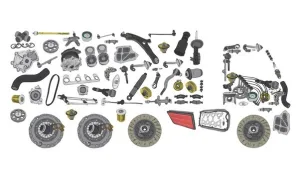
It is best to replace worn-out parts as soon as possible. because the performance of your truck may be diminished by worn-out parts. During the commercial truck servicing, you can have the parts on your truck inspected.
6. Continue to Lubricate
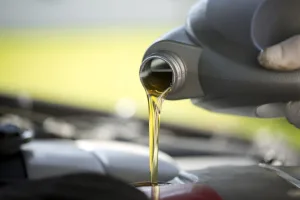
Maintain the lubrication of your car by using only premium lubricant on the suspension, steering, and drivetrain zerks. Failing to do so may result in expensive failures and premature wear.
Ensure that part of your regular vehicle maintenance checklist is keeping an eye out for leaks and slop in drivetrain components. The ideal practice is to lubricate all pertinent parts and fittings prior to each haul.
7. Replace the Oil
Engine degradation typically happens every few thousand miles, and this also applies to trucks that are driven often. All engines eventually wear down, but new oil prevents that from happening too soon. Rather, over time, the Oil experiences a thermal breakdown. Engine friction rises with failure, increasing the possibility of a complete engine failure or an expensive trip to a Collision Repair Truck facility. In addition, you ought to include this in your truck’s maintenance plan.
8. Check the Coolant System
It’s important to understand coolant types and follow the companies’ criteria because poor coolant arrangement maintenance leads to many premature engine breakdowns. By doing this, you can make sure the antifreeze keeps the engine temperature within a reasonable range and prevents rust in the cooling system.
Maintain a clean coolant system at all times, replacing any rusted or broken components. Make sure the right kind and volume of liquids are used. It’s also important that you focus on the balance. To sustain engine heat, coolant must be precisely diluted; this is typically done with a half-and-half coolant-water mixture.
9. Tire Air Pressure
Fuel efficiency suffers with underinflated tires, and safety is compromised by overinflated tires due to premature tread degradation or blowouts.
Keeping your tires properly inflated might save you up to 3.3% on fuel. Your owner’s manual will tell you the appropriate tire pressure for your truck. Thus, maintaining air pressure in commercial trucks might be seen as maintenance.
10. Examine the Fuel and Storage Tank
Fuel flow and engine purring can be maintained by keeping your fuel tank dry and free of impurities.
To avoid water buildup in the gasoline, use the moisture control treatment according to the manufacturer’s instructions if you aren’t employing a professional heavy vehicle maintenance company. Eliminating the presence of water in the fuel will ensure that you can keep the wheels rolling because water in the fuel can cause serious engine troubles.
We can now appreciate the importance of truck maintenance. Trucks with inadequate maintenance are a major contributing factor to vehicle failure.